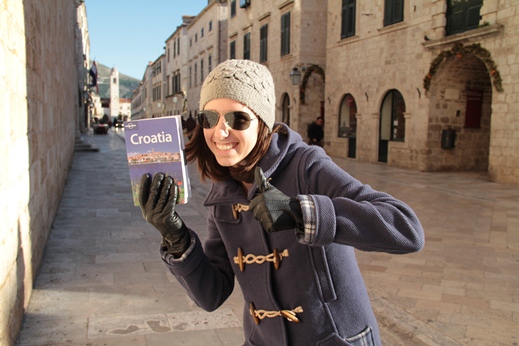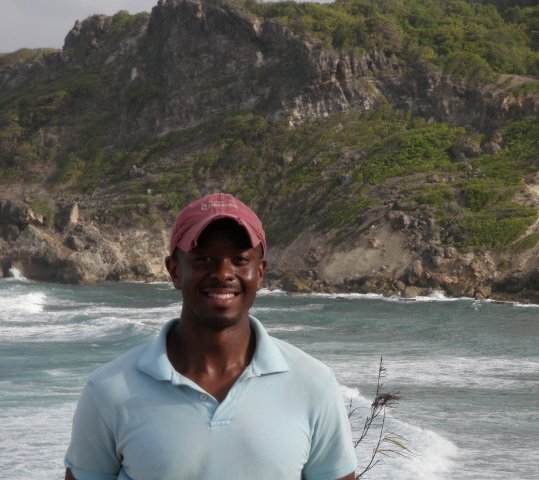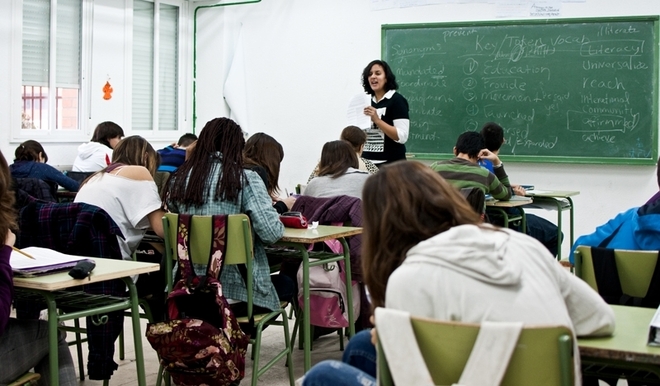Want to learn more about applying for a Fulbright grant in the creative and performing arts or to Germany? Visit the Fulbright U.S. Student Program website.
Cultural Ambassadors: My Fulbright Year in Croatia, By Jess Kuntz, 2010-2011, Croatia
June 11, 2012
In August 2009, I sat down to write my Fulbright Personal Statement, a copy of Rebecca West’s iconic Black Lamb, Grey Falcon open on my desk. Quoting the 1930s travelogue, I wrote the following: “‘I had come to Yugoslavia because I knew the past has made the present, and I wanted to see how the process worked.’ Seventy-odd years after Ms. West penned these words, I sought the same answers.”
A year later, that application brought me to Zagreb, Croatia. Having been a student as long as I could remember, I naturally gravitated towards classes at the Faculties of Political Science and Law, which provided me access to the professors and resources who would inform my research on Croatia’s post-communist political culture. As I spoke with individuals about their own knowledge and experience with the communist era, I refined my thoughts about the lasting legacy of communism on the country’s political culture, giving context to the hard numbers captured by such organizations as the World and European Values Surveys.
And yet, with my research comfortably underway, I couldn’t help but feel concerned that I was not doing enough to further the Fulbright Program’s mission of promoting mutual understanding. So I looked for opportunities to get involved at the community level, from joining a student squash club, to co-coordinating the first-ever conference for Croatian alumni of U.S. exchange programs in cooperation with two Croatian colleagues and the U.S. Embassy.
At the Embassy’s introduction, I met a local NGO, which asked me to advise university-aged students interested in studying in the United States. I agreed, somewhat ambivalent towards my guidance counselor duties. Following a presentation on figurative language, I received an email: “Dear Jess,” it read. “Thank you for your help. Without it, my essay would have been as dry as an arid desert.” I had to laugh. At least they were taking my advice to heart. It was the beginning of the realization that my role was not to force my expectations on my host country, but to identify the community’s needs and find ways in which I could fulfill them.
Whenever I speak to individuals considering applying to Fulbright, I cannot stress the ‘cultural ambassador’ aspect about the program enough. The academic component is important and in many ways sets Fulbright apart from other U.S. government funded exchange programs. But your research should not isolate you. It should be a means — one of several — by which you connect with and enhance your local community. As you approach your application:
- Remember that Fulbrighters are not selected on methodology alone; use your personal statement to tell your personal narrative, show how Fulbright will connect to your larger values and goals, and bring your passions to the page.
- For those applying for a research or study grant, find your focus and narrow it down as much as possible. Your proposed research will seem more unique and manageable to those evaluating your application. It will also show that you’ve really put much thought into the proposal.
- Seek input and reviews wisely. Fulbright alumni either from or who went to the country to which you are applying, practitioners and appropriate academics (from your university and others) can be incredible resources.
- If your grant requires an affiliation, start looking early and cast a wide net. Particularly if you don’t have a preexisting network in country, persistence is critical. Don’t be discouraged if your emails aren’t getting replies. And if all else fails, pick up and phone or log into Skype!
Photo: Jess Kuntz, 2010-2011, Croatia, enjoying the southern city of Dubrovnik at Christmas, 2010
I came to Barbados on a Fulbright grant to conduct a study examining the risk and health-seeking behaviors of incarcerated men in Her Majesty’s Prison Dodds, St. Philip. During my first trip to the prison, I was simultaneously excited and apprehensive. I was apprehensive not so much because I was visiting a prison, but because I would be asking the men serving sentences there to trust me with their life stories and experiences. I was anxious to see how they would react to my research questions which had taken months to prepare. By the time I had been granted approval to conduct my research in the prison, I had developed a burgeoning appreciation for the impact my work could have. After my first meeting with the HIV coordinator and prison psychologist, the two people who guided my direct involvement with the men in Her Majesty’s Prison Dodds, I was reminded of the importance of relationships – a lesson at the heart of my Fulbright experience.
Because of the HIV coordinator’s and psychologist’s support, the imprisoned men were curious and receptive to my work. Everyone was curious to know who was the visiting American interested in learning about their lives. While working in the prison, the HIV coordinator allowed me, along with some female graduate students, to lead discussions. This helped me to build a rapport with several of the men whom I would later interview for my study.
During the meetings before entering the prison, I spoke with experts from the Barbados Ministry of Health (MOH) and HIV/AIDS Commission, as well as the University of West Indies, Cave Hill. From these conversations, I was able to connect the names I had researched in books and the Nation newspaper’s electronic archive with the people who were quickly becoming my friends, mentors and colleagues; from these relationships, I was able to build a network of colleagues who supported me professionally and socially.
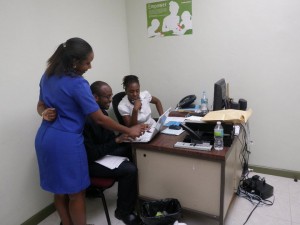 Nicole and Mikala, two consultants at the MOH, gave me an in-depth, crash course on qualitative research and provided articles on the how, why and when to use different research methods. They also took me on tours of the island, invited me to dinner with their families and rescued me when a water main burst near my apartment leaving me without running water. Several other colleagues opened up their homes and went out of their way to help me, so much so, that when I had discouraging meetings (i.e., my ideas got scraped and I had to go back to the drawing board), I was reassured by the knowledge that my friends would motivate me to push through my setbacks.
Nicole and Mikala, two consultants at the MOH, gave me an in-depth, crash course on qualitative research and provided articles on the how, why and when to use different research methods. They also took me on tours of the island, invited me to dinner with their families and rescued me when a water main burst near my apartment leaving me without running water. Several other colleagues opened up their homes and went out of their way to help me, so much so, that when I had discouraging meetings (i.e., my ideas got scraped and I had to go back to the drawing board), I was reassured by the knowledge that my friends would motivate me to push through my setbacks.
John Donne’s phrase “no man is an island, entire of itself” truly applied to my Fulbright experience. I spent more than six months drafting, researching and thinking about the project I wanted to create, but applying for a Fulbright grant was not a solitary process. My friends, colleagues and mentors (including the University of Chicago’s in-house Fulbright application review panel), gave their time and energy to ensure that my application materials were in good shape.
Two years had passed after college before I applied for a Fulbright grant, and I ended up doing so because my best friend had also applied. Relationships are, and were, central to making my Fulbright application successful!
My advice for applicants:
- Imagine a project that reflects your interests and passions. Take time to envision how your work will be conducted and what the results might be.
- Seek support from professors, work colleagues and friends (particularly if they are Fulbright Student or Scholar Program alumni).
- Think strategically about the in-country resources that will be available to you for your proposed research or as a Fulbright English Teaching Assistant.
- Apply with the assistance of a Fulbright Program Adviser (FPA) whenever possible. If your school has an FPA, speak with him or her about the application resources available on your campus.
Top photo: Justin Hill, 2009-2010, Barbados, standing on the cliffs at Cove Bay, St. Lucy, Barbados
Middle photo: Justin Hill, 2009-2010, Barbados (center), with his colleagues Nicole and Mikala from the Barbados Ministry of Health at the Vashti Inniss Empowerment Center, Saint Michael
To learn more about Justin Hill’s Fulbright grant, click here to watch his video interview and hear him describe his experiences.
How Do You Teach and Learn Diplomacy? By Linnette Franco, 2009-2010, Fulbright English Teaching Assistant to Spain
May 23, 2012As a Fulbright English Teaching Assistant (ETA) in Madrid, Spain, I worked with over 120 students in a citywide bilingual program. The highlight of my year was working with 14- and 15-year-olds in the Global Classrooms program for Fulbright ETAs to Spain. In 10 Madrid high schools, Fulbright ETAs helped to prepare students for an annual Model United Nations conference. Actively participating in a Model U.N. conference is a rigorous endeavor for any high school student, but even more so when they are expected to participate in another language. I adored my students, but they succeeded in proving every cliché about high schoolers true; they often complained, whined and put more effort into not doing work than doing it. They didn’t want to participate in an extracurricular activity involving more research, writing, or public speaking in English. My students were very opinionated about their hesitation and initial dislike of preparing for the conference.
I myself was ready to take on the challenge of developing and strengthening my students’ skills. As Fulbright ETAs, doing this would be an easy enough task compared to providing our students with the more abstract lesson required for them to be successful at the conference: we had to enhance our students’ understanding of the importance of diplomacy. We had to find ways to help them recognize the value in promoting thoughtful conversations and effective relationships. Our students had to think more outside of their classrooms, school, neighborhood, city and country, in order to understand better that actions and relationships overseas can have an impact on them. I had to teach my students an abstract concept that I myself was actively experiencing and reflecting on during my Fulbright grant.
When you are a Fulbright ETA, you always have to be “on,” readily available to answer any question or assuage concerns your students, new peers, neighbors and friends may have. As an American abroad, you can become the be-all and end-all resource for everything American, but you will want to avoid proving every cliché about Americans true. You must be available to answer many questions about the United States, sometimes whether you like it or not, and this can be a real learning experience. At the end of the school day, you can leave your Fulbright ETA self at your assigned school, but you can never leave your American self. As Fulbrighters, we become educators to everyone we meet, not just our students. We inform others about the United States. We can dispel myths and correct misinformation while making a temporary new home for ourselves in our host countries.
Sometimes, you will have a great desire to answer questions and explain American laws, politics, customs, or food. Other times, the discomfort generated by questions about the U.S. is so palpable you almost wish you didn’t have to speak for the whole country. Therein lays the beautiful and positive dilemma of being a Fulbright ETA. How one handles those sometimes uncomfortable conversations with grace and tact can make for a successful Fulbright experience. But it is not until you are a Fulbrighter abroad that you really get an in-depth understanding of how to manage these kinds of conversations. Having experiences in which you have to speak for a culture and country is how we truly learn diplomacy, and, also how we can teach it. When you are “the foreigner” to others and they are “the foreigner” to you, you are compelled to communicate and find things that will help you to connect with others. This is what my students had to do during the Model U.N. conference and what I had to do each day as a Fulbrighter in Spain.
After weeks of researching, writing and debating, my students ended up thoroughly enjoying themselves at the Model U.N. conference. The conference flowed naturally, and they met other bilingual students and formed new friendships. They garnered the confidence to speak about their assigned country with assurance and listened actively when questioned about its policies. They were graceful and exercised tact, and had learned that seeking to foster mutual understanding is an accomplishment in and of itself. I had learned the very same.
My advice to prospective applicants is to seek out opportunities that involve working with diverse groups of people. Whether it is through internships or community service, it is important to place yourself in settings that will encourage engaging in all kinds of conversations and events. Take time to reflect on how you might navigate your way through tough conversations during your grant. Be ready to dispel myths about Americans that may make you giggle, frown or feel surprised. If you have reflected and are eager to pursue a Fulbright grant, then be prepared for one of the most amazing experiences of your life.
Photo: Linnette Franco, 2009-2010, English Teaching Assistant to Spain, helping her students interpret a popular American rap song during one of her English classes (photo courtesy of Jermil Sadler)
The Bridge-Builder Redux, By Chase Stoudenmire, 2010-2011, Fulbright English Teaching Assistant to Georgia
May 18, 2012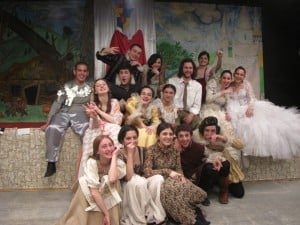 My Fulbright grant lasted nine months; however, my Fulbright story is a bit longer.
My Fulbright grant lasted nine months; however, my Fulbright story is a bit longer.
It’s tempting to think of my Fulbright year as my story. In a sense, it was and is. But it’s important to step back and remember that what I may consider my own story – complete with a beginning, middle and an end – is also just another chapter in a larger, ongoing story. You might say I made my contribution to a fictional periodical entitled Educational Exchange, published on an annual basis by the (also fictional) Fulbright Press since 1946. You would find it on the ‘Mutual Understanding’ shelf located in a back corner of the Library of Congress.
I’ve been back in the United States for eight months. Recently, however, I’ve been reminded that like that ongoing collection of Fulbright stories, mine doesn’t have an ending; at least not yet.
My initial decision to apply for a Fulbright English Teaching Assistantship to Georgia was inspired by one of my professors who happened to have been born and raised there. She first came to the United States on a graduate school fellowship. Years later, she was tickled to inspire an American graduate student of her own to pursue a Fulbright grant in Georgia. Here, we see the first bridge connecting a story I might consider my own, to a larger story to which I’m simply adding my piece.
My signature project as a Fulbright English Teaching Assistant in Georgia was leading a full production of an English-language play with a cast of 15 teenage students titled Beauty IS a Beast, a fairy tale set in an ancient kingdom featuring two princesses, one of whom was homely and sweet, the other, beautiful and vain. The latter sister learns a few things about true beauty when a prince from the neighboring kingdom pays a visit. Pulling together such an effort was no small task, but these students had the talent to match the challenge. I remember clearly the day I discovered some of those students could sing in English better than I could speak it.
I had three goals for the project. First, no matter what the end result, I wanted those students to have a positive experience. Subordinate to achieving the first goal, I hoped that we would put on a good show. Third, of course, I hoped their English language skills would improve as a result of preparing for the performances. Three weeks after those 15 students took a bow on the night of our final performance I left Georgia knowing that I could say with confidence that at least those first two goals had been achieved.
I thought that was the end of my Fulbright story. I was wrong.
One of those 15 students was also a member of Georgian teen pop group called CANDY. Months later, her group went on to win the 2011 Junior Eurovision contest. In their subsequent interviews, two members of that group responded in Georgian. Another two responded in Russian. My student spoke English. Good English.
Goal number three, check. But the story still wasn’t over.
I had a Georgian professor in the United States. Then, I became an American teacher in Georgia. And just like my Georgian professor never expected to inspire one of her American students to go to Georgia, I never expected that I’d end up inspiring one of my Georgian students to go to America. But that’s exactly what happened.
Another one of my 15 students won a scholarship to spend a year at an American high school. My former student had an American teacher in Georgia. Now, she’s a Georgian student in the United States. I can’t help but smile – in my own way – any time I hear Elton John’s ‘Circle of Life.’
My former student has done more than just go to class here in the States. Five months after taking her final bow on our stage in Georgia, this student auditioned for a school play in suburban Virginia. She made the cut. On stage, she played a foreign spy. Off the stage, she’s been playing a different role; the forward bridge in an ongoing cycle of teaching, learning and understanding.
I don’t presume to take credit for the accomplishments of my former students, but I know that I’ve played some small part in their story. For those of you interested applying for a Fulbright English Teaching Assistantship, you’ll become an assistant teacher. You’ll leave with a wonderful story of your own and that story may well end up being longer than you think. You’ll also become a partial author of a larger, ongoing story, filed under ‘Mutual Understanding.’
Photo: Chase Stoudenmire, 2010-2011, Fulbright English Teaching Assistant to Georgia (back row, fifth from left in light brown tie), celebrating with the cast of students from Kutaisi Public School #3 after their final performance of “Beauty IS a Beast” at the Aleksi-Meskhishvili Theater in Kutaisi, Georgia
Want to hear more about Chase’s Fulbright English Teaching Assistantship to Georgia? Click here to hear an NPR interview featuring his Georgian University of Arkansas Professor Kate Mamiseishvili and Chase discussing his experiences.
 Just in time for the 2013-2014 application cycle (which launched on May 1), we’re happy to announce the new Fulbright U.S. Student Program website!
Just in time for the 2013-2014 application cycle (which launched on May 1), we’re happy to announce the new Fulbright U.S. Student Program website!
After receiving feedback from our most frequent users, we’ve redesigned the look and simplified how the content is organized.
A few highlights:
– Grantee feature on the homepage: Learn about the stories and projects of recent Fulbright recipients.
– Video Embedding: dynamic content will be posted on a regular basis showcasing Fulbright applicant resources and in the near future, video testimonials.
– New navigation: The top menu has been designed to simplify the navigation experience and make finding information easier.
Over the coming months, additional content and features will be added to further refine the user experience. We hope you will visit the new site regularly and experience all of its features!

